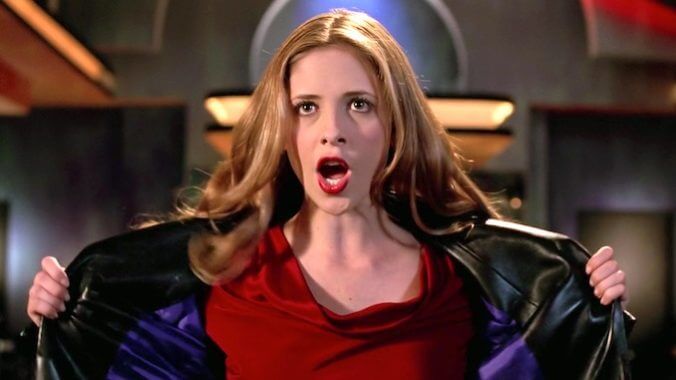The Art of the Musical Episode—And Why Buffy’s “Once More With Feeling” Still Slays
Photo Courtesy of 20th Television
In the modern television landscape, there’s a strangely persistent gaggle of specific, enduring episode conventions that crop up again and again across all genres, networks, and runtimes—easily-recognizable templates that can be recycled and adapted to suit the specific characters and themes of a certain series. These “staple episodes,” as I’ll call them (for lack of a better term, though there’s bound to be one out there) continually delight fans despite (or perhaps because of) the repetitive nature of their format. Even though we’ve seen dozens of TV shows do their take on a bottle episode or a heist episode or a Christmas special, they continue to persist across the medium, and more than that, they’re often viewed as milestone episodes: special occasions to get excited about or hope the writers decide to use one day.
The king of all staple episodes is, of course, the musical episode—a consistent favorite among fans of whatever show is ambitious enough to attempt one. If by some chance you haven’t seen a musical episode, the premise is right in the name: characters that normally deliver spoken dialogue will periodically break into song and belt out jaunty tunes as they move the story along. It’s a strange and demanding ask of a TV show, to come up with music, lyrics, choreography, and train its stars (many of whom may not already be vocalists) for professional-quality performances, but the end result is often treasured by fans. But, just like television as a whole, some do it better than others, and across the long history of musical episodes, some shows have undoubtedly been more successful. Though there’s no specific formula as to which TV shows will yield strong (or, at least not ear-bleed-inducing) musical episodes, TV’s best (and worst) attempts at bringing the Great White Way to the small screen can help outline the criteria of what makes a truly great musical episode.
From The Love Boat to I Love Lucy to Riverdale, it’s remarkable just how many shows (across numerous genres) have attempted a musical episode. (Though I want to make a note that I don’t count fully musical shows like Glee or Crazy Ex-Girlfriend under this heading, they’re worthy of their own accolades entirely.) But in order to know what makes a truly great musical episode, you’ve got to know what makes the best ones work so well, and it should come as no surprise that Buffy the Vampire Slayer’s iconic musical episode tops my list.
-

-

-

-

-

-

-

-

-

-

-

-

-

-

-

-

-

-

-

-

-

-

-

-

-

-

-

-

-

-

-

-

-

-

-

-

-

-

-

-








































